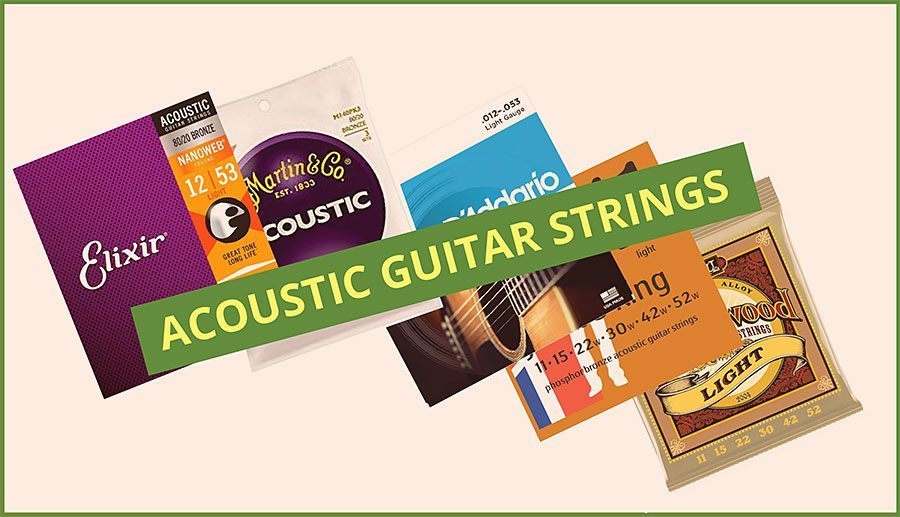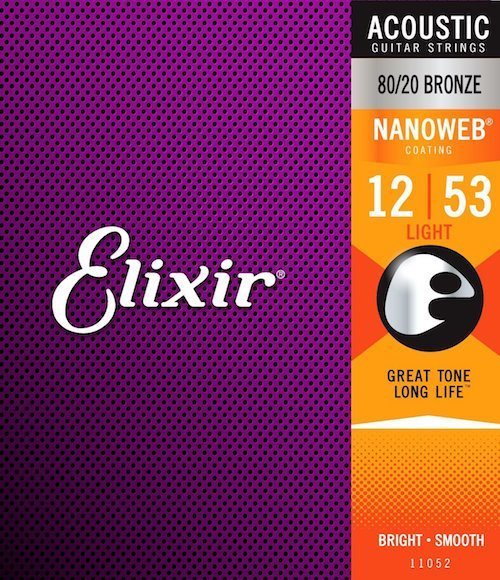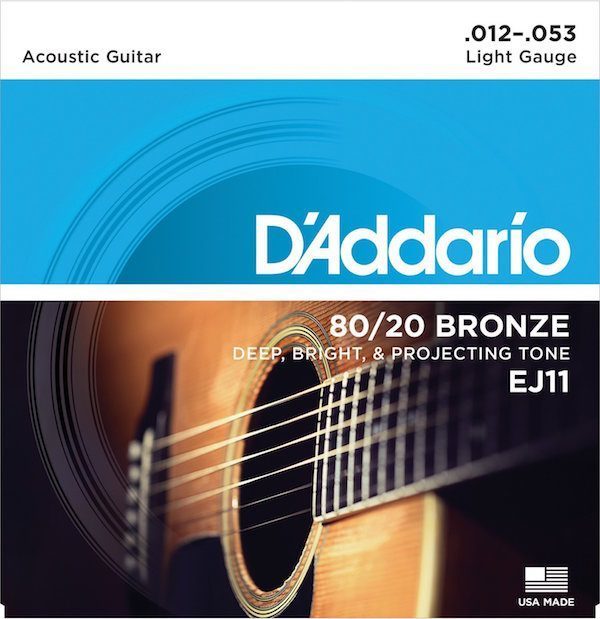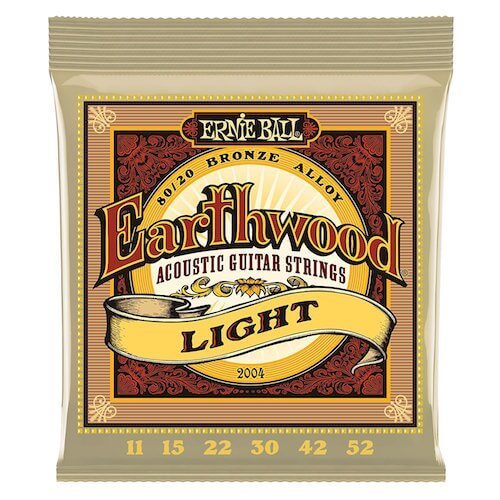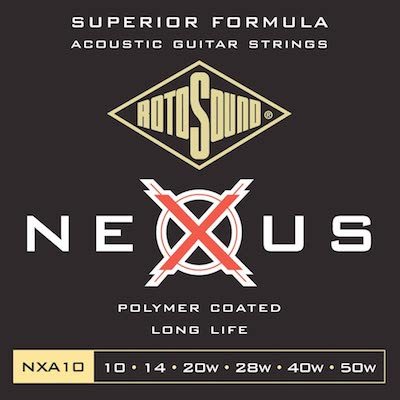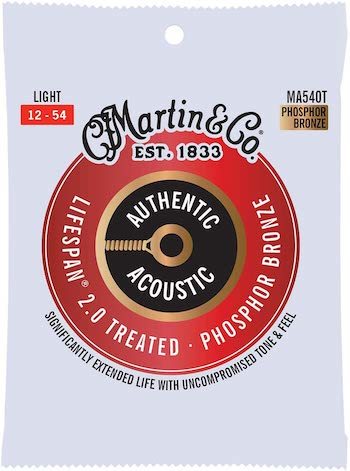Discover the best type of strings for your acoustic guitar that sound great and last a long time.
- Wondering why your guitar strings break so much? Check out The 8 ACTUAL Reasons Why Your Guitar Strings Are Breaking
Acoustic Guitar Strings: Everything You Need to Know
If you’re an acoustic guitar player, you know how important it is to have the right strings. Strings can have a big impact on your guitar’s tone, playability, and overall performance.
Here are the key factors to consider when buying acoustic guitar strings:
- Gauge: Gauge refers to the thickness of the strings. Lighter strings are easier to play, but they may not produce as full of a sound as heavier strings. Heavier strings produce a fuller sound, but they can be more difficult to play.
- Material: Acoustic guitar strings are typically made from phosphor bronze, 80/20 bronze, or silk and steel. Phosphor bronze strings are the most popular type of string, and they produce a warm, rich sound. 80/20 bronze strings produce a brighter sound, and silk and steel strings produce a softer, mellower sound.
- Winding: Round-wound strings are the most common type of string, and they produce a bright, full sound. Flat-wound strings produce a darker, smoother sound, and half-wound strings are somewhere in between.
- Coating: Coated strings last longer than uncoated strings and can also help reduce friction and finger noise.
- Core: A string’s core is the material wrapped around to create the string. Round core strings have a round core, and hex core strings have a hexagonal core. Round core strings produce a warmer, more mellow sound, while hex core strings produce a brighter, more articulate sound.
Acoustic Guitar Strings FAQs
Q1. What is guitar string gauge?
The string gauge refers to the thickness or diameter of the strings, measured in thousandths of an inch. The string gauge affects the strings’ tension, playability, and tone.
Q2. What gauge acoustic guitar strings should I use?
The best gauge for you will depend on your personal preferences and playing style. Starting with lighter gauge strings is generally recommended if you’re a beginner.
As you get more experienced, you can experiment with heavier gauge strings to see what you like best.
Here is a quick guide to the three most common guitar string guages:
- Extra Light: These strings have a gauge range from .010 to .047 inches. They have a low tension, which makes them easy to play and bend.
Extra light gauge strings also have a bright and lively sound, but less volume and sustain than heavier gauges. They are good for beginners, players with small hands or light touch, or players who want to reduce finger fatigue or stress on their guitar. - Light: These strings have a gauge range from .012 to .053 inches. They have a moderate tension, which makes them balanced and versatile.
Light guitar strings also have a warm and full sound, with good volume and sustain. They are good for most players and styles, especially fingerstyle or solo playing. - Medium: These strings have a gauge range from .013 to .056 inches. They have a high tension, which makes them harder to play but more stable and responsive.
Medium guitar strings have a rich and powerful sound, with a lot of projection and resonance, depending on the brand. They’re good for players who want to get the most out of their acoustic guitar, or play in drop or alternate tunings.
Q2. How often should I change my acoustic guitar strings?
How often you need to change your strings will depend on how often you play and how much you sweat. If you play your guitar regularly, you’ll probably need to change your strings every few weeks.
You may need to change your strings more often if you sweat a lot. Read our article that goes into more detail; How Often Should You Change Guitar Strings?
Q3. What acoustic guitar strings are the best?
There is no one-size-fits-all answer to this question, as the best acoustic guitar strings will vary depending on your personal preferences and playing style.
Don’t worry, we have some reliable brands to suggest. Continue reading to find out our top recommendations.
Are you sick of strings hurting your fingers and making your practice time a drag? Time to change your strings to Elixir’s then. A fantastic brand of strings suited to many styles of music, including blues, bluegrass, and folk style acoustic guitar playing.
Elixir strings come with a nanoweb or polyweb coating making them feel silky smooth and a dream to play. Furthermore, they really do last at least 3-4 times longer than cheaper uncoated string brands because they’re coated.
Due to the superior materials and coating, these Elixir acoustic guitar strings hold their tuning beautifully too. From phosphor bronze to 80/20 bronze, we urge you to try Elixir coated acoustic guitar strings.
You’ll probably never go back to your old uncoated strings again.
What the Manufacturer Says:
- Only coated string brand to protect the entire string with an ultra-thin coating, keeping gunk out of the gaps between the windings
- Extended Tone Life – players report their tone lasts longer than any other string, uncoated or coated
- Consistent performance and tone – they're ready to play whenever you are
With their micro-coated string wrapping, these D’Addario EXP 80/20 Bronze strings make your acoustic guitar sound crystal clear and feel gorgeous to play.
If you’re sick of your guitar strings feeling brittle and sounding dull after just a week of use, invest in these coated D’Addario strings.
If you’re a guitarist playing at home, recording, or gigging, you can’t go wrong with D’Addario EXP11 coated strings.
They offer excellent tone and are the perfect choice for any acoustic player looking to extend the life of their strings by three to four times.
What the Manufacturer Says:
- The string lifespan is a minimum of 4 times longer
- An ultra-fine layer of EXP Coating is bonded to the 80/20 bronze wrap
- D'Addario EXP strings are created using advanced proprietary machinery
➡️ Best acoustic guitar strings for bluegrass? D’Addario EJ19 Phosphor Bronze Bluegrass: Get on Amazon
If you’re after cheap as chips traditional non-coated strings, first we’d ask you why on earth is that?
Joking aside, these Ernie Ball acoustic strings are well-loved industry-standard strings you can trust if you’re on a tight budget.
The 80% copper 20% zinc Earthwoods help the sound resonate from your acoustic, producing a clean and fresh tone, and despite them being non-coated, they don’t feel too bad to play.
What the Manufacturer Says
- Crafted in Southern California, USA. featuring the finest and freshest materials
- 80/20 bronze wrap wire
- Bright balanced tone
Our third pair of coated acoustic guitar strings, the Rotosound Nexus clear coated phosphor bronze gives a bright, punchy tone. Thanks to the coating, they’re kinder on your fingers; a real bonus if you’re a beginner.
Because changing strings is a real bore, do yourself a favour and pay that little bit extra for strings that give you a longer life and better sound to boot.
Most users report that the strings stay vibrant and full of life even when they have been on the guitar for months, and the lighter gauge options are more forgiving on your fingers. Happy days.
What the Manufacturer Says:
- The clear polymer coating allows for a more subtle tone
- Subdued finger noise & highly resistant to perspiration from the players hands
- Legendary British tone
Thanks to the patented anti-corrosion treatment that protects them, the Martin Lifespan 2.0 Authentic Acoustic guitar strings will make your guitar playing sparkle.
Whether you’re fingerpicking a classic like Dust in The Wind or strumming big chordy rhythm parts like Neil Young, the sound from these strings is balanced from the bass strings to the treble.
Because the Martin Lifespan strings come in lighter gauges, they suit smaller-bodied guitars such as travel and parlour guitars.
These coated strings are great value for money and have a feel that won’t tire your fingers out after a long practice session.
What the Manufacturer Says:
- Made from 92/8 phosphor bronze for brilliance & clarity
- Anti-corrosion treatment that protects the core & wrap wire from corrosion
- Available in gauges extra light to medium

